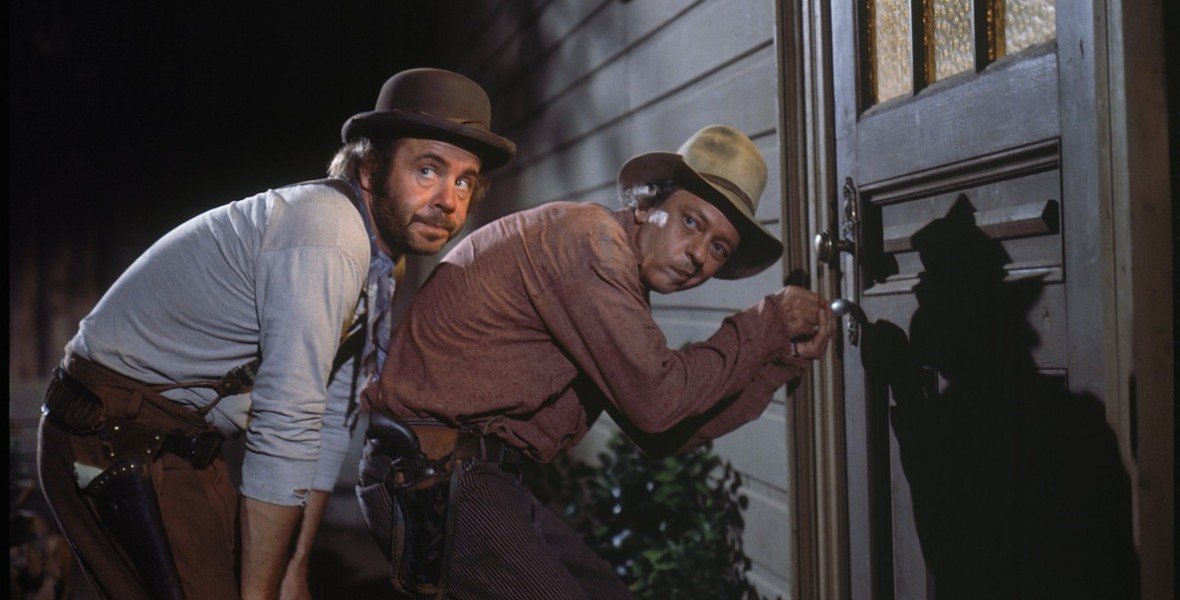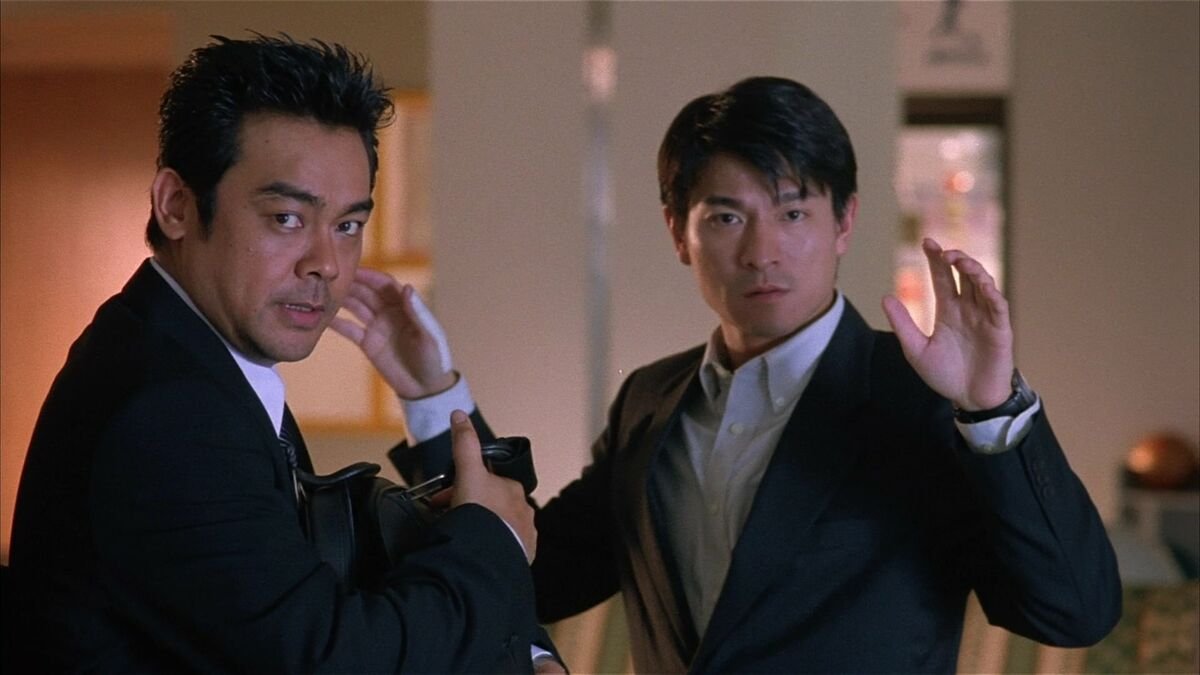Review: The Apple Dumpling Gang (1975)
While I have fond memories of watching Don Knotts and Tim Conway’s humorous, bumbling outlaw duo in The Apple Dumpling Gang as a child, I was pleased to find, as a parent with kids of my own now, that the rest of the film holds up as a decent family comedy western.
Set in a frontier town in northern California in the late 19th century, The Apple Dumpling Gang tells the story of a roving gambler by the name of Donovan (Bill Bixby, who played Dr. David Banner on the The Incredible Hulk TV show from the late 1970s and early 80s) who is conned into taking responsibility for three orphaned siblings—Bobby (Clay O’Brien), Clovis (Brad Savage), and Celia Bradley (Stacy Manning)—who show up in town on the stagecoach. The female stagecoach driver, who is named Magnolia but goes by “Dusty” (Susan Clark), is recruited to help take care of the children.
Over the course of The Apple Dumpling Gang, Dusty and Donovan’s relationship progresses, as in countless old movies, from hostility to acquiescence to platonic affection to romantic passion. The highlight of this process, however, is their show-stopping, glass-smashing, table-flipping quarrel in a saloon, when Dusty accuses Donovan of trying to take advantage of their non-conjugal child-care arrangement with the purchase of a new brass bed. (It turns out the bed was meant for the children, not the two of them.)
Harry Morgan (who many classic TV aficionados will recognize as Col. Potter from M*A*S*H) plays the local sheriff/judge/justice-of-the-peace/barber with his trademark mix of orneriness and warmth. Slim Pickens (who you might remember as the cowboy who rides the bomb in Dr. Strangelove) shows up as a notorious gang leader for the final bank heist sequence. One of the pleasures of The Apple Dumpling Gang is recognizing so much of the cast from other TV and movie roles.
The narrative stitches together a number of humorous situations, delightful character foibles, and Western tropes with the thread of a classic plot about a bachelor learning to care for kids. The setting is a classic Western everytown, placed here amid the dry, pine-covered hills of California. I’ve already mentioned there’s a bank robbery. The three orphans will also find a giant nugget of gold in an abandoned mine, and ride a minecart (via rear projection) down a hill and through the streets of town (and yes, they smash through a big mirror being carried across the street). There are late-night stick-ups—or rather attempted stick-ups. Outlaws reside in shacks in the hills. There’s a big climactic shootout in town involving the use of dynamite. A chase featuring a fire wagon. Peril on a rushing river. The rapid deployment of most of these clichés keeps them from going stale and, along with the quality sets and costumes, make The Apple Dumpling Gang a pleasant catalogue of the Western genre for little kids.
Now, all this is to say that we shouldn’t discount the rest of the film, even if Knotts and Conway’s bumbling outlaws are undoubtedly the source of the film’s lasting appeal. Knotts’ Theodore and Conway’s Amos dominate The Apple Dumpling Gang, even in spite of their main function being comic relief until the last act. Theodore and Amos call themselves the “Hashknife Outfit” and fancy themselves fearsome bandits, having been members of the infamous Stillwell Gang. When they accidentally shot the boss in the leg, they were booted out, and have done little since. In the earliest parts of the film, Theodore and Amos keep trying to rob Donovan, but later on they switch their focus to the golden nugget, which brings the Bradley orphans into prominence and makes the children the object of many would-be guardians (who mostly just want their gold). When the roguish relative (Don Knight), who originally left the kids with Donovan, returns to town to claim the kids (and their gold), the kids figure no one would want them if they had no gold, and so they enlist the hampless Theodore and Amos to steal the nugget from the bank. You can imagine how successful they are.
The duo’s gag about trying to steal a ladder from a fire hall, to use in the bank heist, is probably their best moment of physical comedy, but they also generate some funny banter between them and goofy interactions with the kids. To put things in perspective, the duo’s style of comedy is a lot more laid back than many audiences today might appreciate: it lacks the aggression of the Three Stooges’ slapstick, or the blistering pace and bite of the Marx Brothers’s banter. While Don Knotts’ performances, with his weird face and buggy eyes, in this and The Incredible Mr. Limpet (1964) really amused me as a kid, as a comedy duo, Knotts and Conway are no masters. But they do make me consistently chuckle at their folly, in an affectionate way.
Although my one boy was hooked by the title (and the summary’s description of gold being found), the traditional dessert doesn’t play a key role in The Apple Dumpling Gang. The title is the gang name the kids give themselves at one point. But it’s mostly just an amusing-sounding, frivolous title, and it’s that kind of movie. Don’t watch it expecting anything else.
6 out of 10
The Apple Dumpling Game (1975, USA)
Directed by Norman Tokar; screenplay by Don Tait, based upon the novel by Jack M. Bickham; starring Bill Bixby, Susan Clark, Don Knotts, Tim Conway, Clay O’Brien, Brad Savage, Stacy Manning, Slim Pickens, Don Knight, David Wayne, John McGiver, and Harry Morgan.



George More O’Farrell’s The Holly and the Ivy is a perceptive Christmas drama that deserves a place in the Christmas rotation.